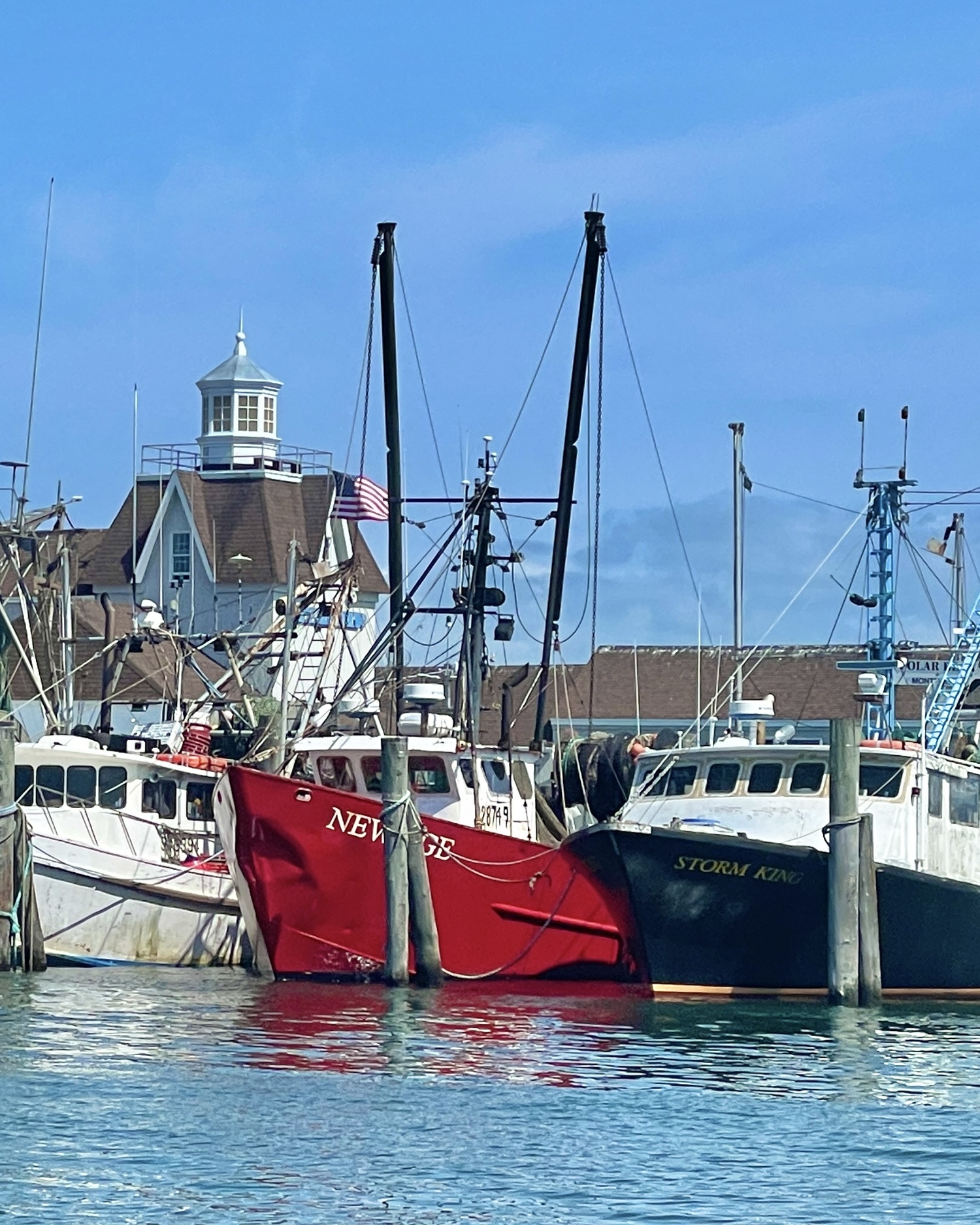
A Montauk commercial fisherman is standing trial in federal court in Islip on felony charges of fraud and conspiracy related to the sale of what the government says was $850,000 worth of illegally caught fish sold through the well-known wholesale fish market Bob Gosman Co.
Federal prosecutors have charged Christoper Winkler, 63, with committing wire fraud and mail fraud by falsifying landing reports to under-report exactly how many fish he had caught and sold on hundreds of fishing trips between 2014 and 2017, and by conspiring with the Gosman’s wholesale company to conceal the source of the fish being sold at New York City wholesale markets.
Winkler’s vessel, the NEW AGE, is a relatively small, fire engine red, 45-foot steel-hulled commercial trawler that has fished out of Montauk for more than 30 years. But from May 2014 through at least February 2017, the federal indictment claims, Winkler and the Gosman’s wholesale company used shadow companies, set up like separate wholesalers but owned by Gosman’s, to bring fluke and black sea bass to the New York City market that had been caught in excess of federal- and state-managed quotas.
Winkler and the Gosmans were initially indicted in 2021 after a years-long investigation by the National Oceanographic and Atmospheric Administration that snared nearly two dozen fishermen from around Long Island for concealing the illegal landing and sale of fish caught in excess of set quotas.
During the trial, which is being held in the federal courthouse in Central Islip, federal prosecutors have called more than a dozen witnesses to testify against Winkler — including two members of the Gosman family, Bryan and Asa Gosman, who pleaded guilty to conspiracy charges related to the scheme in 2022 and agreed to pay a $50,000 fine in exchange for some of the same more serious charges that Winkler faces being dropped.
After the Gosmans pleaded guilty, a new expanded indictment was brought against Winkler, alleging a far broader scheme to sell illegally caught fish. What the federal prosecutors had initially said was about $250,000 worth of fish, the new indictment said was actually more than 200,000 pounds of illegally caught fluke and 20,000 pounds of sea bass, worth some $850,000 in total.
Federal and state commercial fisheries management relies on quotas for each species of fish a given vessel might catch, for each voyage or by the week. Fluke limits can be as low as 70 pounds of fish for a trip.
But in an inexact practice of trawling for fish with large nets towed through the ocean, fishermen often may catch many times their allowable quota for a specific species. The quota rules dictate that the fish be discarded, even though they often are already dead and could be worth tens of thousands of dollars to the fisherman — a practice that fishermen have long said is pointless, counter-productive and frustrating.
The indictment says that Winkler had falsified vessel trip reports that are supposed to detail exactly how many of each species of fish were caught and how many were discarded — information that regulators ostensibly would use to both enforce the law and inform future quota management. Winkler would only report landing the fish he was allowed to have but would land much more, the indictment claims.
The Gosmans, likewise, used falsified dealer reports to bring fish to market that should not have been able to be landed and sold.
The alleged scheme was profitable: From September 2015 to March 2017, the indictment says, the three dealers paid Winkler $620,000 for unreported and over-quota fluke and black sea bass.
An attorney for Winkler, Richard Levitt, said that he expects testimony at the trial to conclude later this week and Winkler’s fate to be handed over to the 12-person jury. Levitt declined to comment on the case against his client.
If convicted on all the charges, Winkler could face up to 20 years in prison.